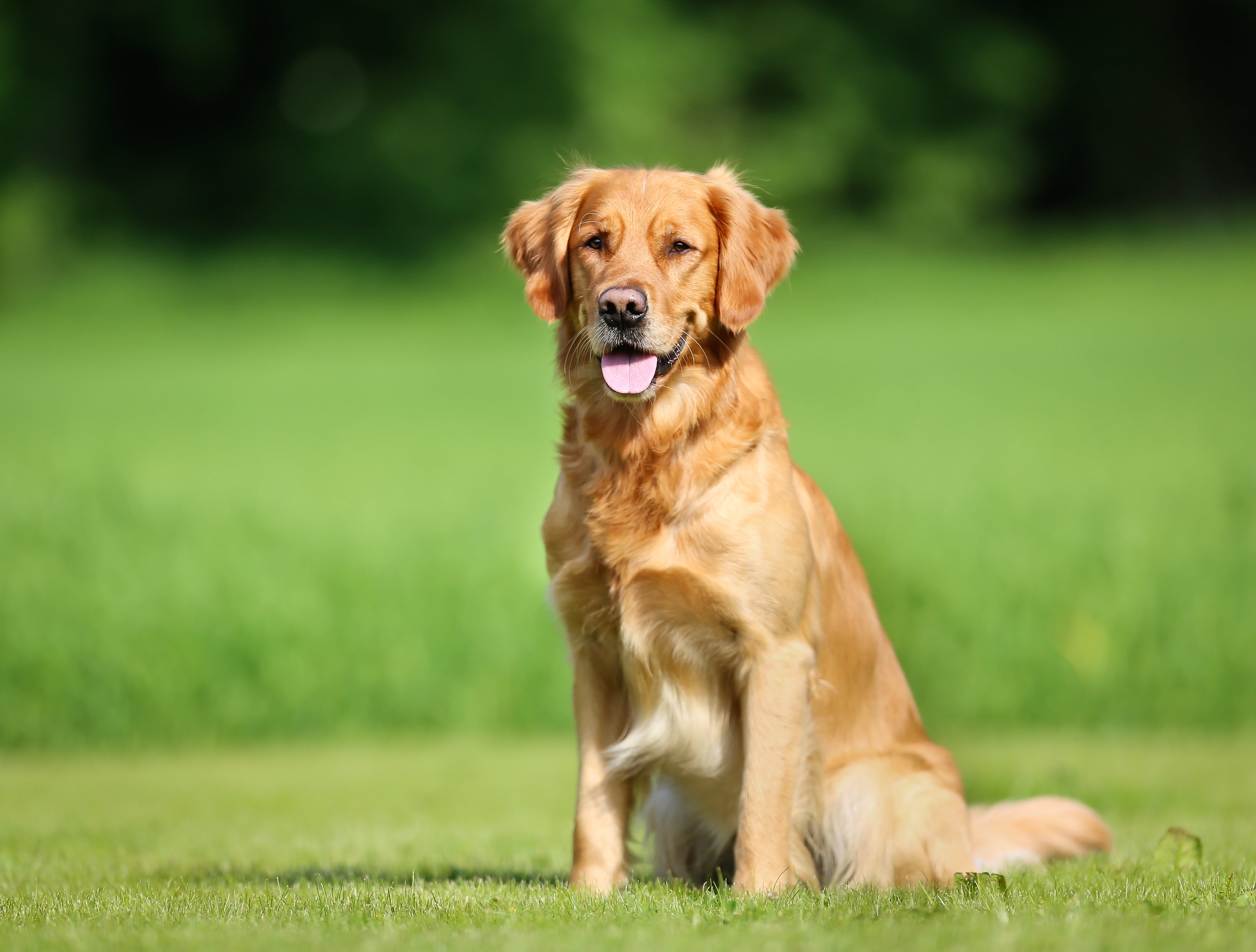
Golden Retriever —- Everything You Need to Know About This Dog Breed
The Golden Retriever is a very popular dog breed for its friendly nature, intelligence, and elegant appearance. Whether you own a Golden Retriever or are considering adopting one, this article will provide you with all the essential information about this British dog breed.
Life with a Golden Retriever
Before becoming a pet, the Golden Retriever was first and foremost a hunting dog trained to retrieve game from water and land; he loves to swim and play fetch! This dog can adapt to a variety of living arrangements, including apartment living, as long as he gets daily exercise.
|
Adaptability |
XXXXX |
Need exercise |
XXXXX |
Training |
XXXXX |
|
Affection |
XXXXX |
Interview |
XXX |
Tendency to bark |
XXX |
|
Understanding with cat |
XXXX |
Health problems |
XXX |
Territorial |
XXX |
|
Understanding with dog |
XXXXX |
Playfulness |
XXXXX |
||
|
Agreement with children |
XXXXX |
Intelligence |
XXXXX |
||
|
Agreement with foreigners |
XXXXX |
Social needs |
XXXXX |
X = little, XXXXX = A lot
Physical characteristics of the Golden Retriever
Size
The mature male Golden Retriever should be 23 to 24 inches tall at the withers (around 60 cm), while females should be 21.5 to 22.5 inches tall (around 55 cm). A deviation of more than one inch in either direction leads to disqualification in competitions, according to the American standard.
Weight
Generally, adult dogs weigh between 55 and 75 pounds (25 to 34 kg) with females often being smaller and lighter than males.
Coat
The coat is dense and waterproof, sometimes wavy or straight. Colors range from cream to dark gold, and the nose is black. One of the breed's distinctive features is its elegant fringes on the front of the neck, the back of the front legs, the back of the thighs, the belly, and under the tail.
Golden Retriever Personality Traits
Temperament
The Golden Retriever is well known for its gentle nature and exceptional intelligence. Highly sociable by nature, they are ideal dogs for families and other pets. Their boundless energy and love of exercise make them excellent companions for outdoor activities.
Personality
By all accounts, the Golden Retriever's defining characteristic is its eagerness to please. It seeks affection from its own family as well as from strangers. The Golden Retriever adapts well and is eager to go out into the world... and that's why we love them so much!
Behavior and education
The Golden Retriever loves everyone, but sometimes expresses his love by jumping on people. These large dogs need basic obedience training from a young age. Fortunately, the Golden Retriever is easy to train! He will be able to sit on command, walk on a leash without pulling, and come when called.
Without proper training, socialization, and daily exercise, the Golden Retriever's boundless exuberance—especially as a teenager and young adult—can be overwhelming and even frightening to small children, despite the dog's best friendly intentions.
Choose a Golden Retriever as a family dog only if you are willing to supervise the children and the dog when they are together to ensure everyone plays nicely. It is normal for puppies to chase and bite in play, so you must teach a Golden Retriever puppy how to behave around children and teach the children how to play properly with the dog.
Common health problems
Cancer
At the top of the list of health concerns is cancer, including hemangiosarcoma, lymphosarcoma, mast cell tumors, and bone cancer. Treatments for this disease can be emotionally and financially devastating. It's unclear to what extent all of these forms of cancer are genetic or exactly how they are passed down from one generation to the next, but the very high cancer rate in Golden Retrievers is possibly hereditary (at least in part).
Hip dysplasia
Golden Retrievers also suffer from a high incidence of hip dysplasia, which develops when the head of the thigh bone does not fit properly into the hip socket. These dogs may also have genetic elbow deformities.
Eye diseases
Eyes are another common problem with the breed. When considering adopting a Golden Retriever, make sure its parents have been examined by a board-certified veterinary ophthalmologist. The American College of Veterinary Ophthalmologists (ACVO) works with the Companion Animal Eye Registry (CAER) to maintain an official registry of purebred dogs that have been examined by ACVO members (diplomats). An ACVO diplomat is certified in the field of veterinary ophthalmology after completing the necessary training and examinations.
Heart disease
Heart disease is also common in Golden Retrievers and usually presents with a slight heart murmur. Have your dog's heart checked at least once a year by your veterinarian.
Obesity
When you adopt a puppy (regardless of breed), you need to prevent one of the most common health problems in pets: obesity. One of the easiest ways to improve your dog's health and prolong his life is to help him maintain an appropriate weight. A proper diet and adequate activity level can help prevent these problems.
Golden Retriever Care and Maintenance
Although they shed moderately, the Golden Retriever has a dense coat that requires regular brushing to prevent matting and reduce shedding. It's also important to provide them with a quality diet and daily exercise to maintain their physical and mental health. They require occasional baths to eliminate doggy odor. Their floppy ears should be cleaned regularly to prevent the accumulation of dirt and debris.
History and origin of the Golden Retriever
The Golden Retriever originated in 19th-century Scotland, where it was bred to retrieve waterfowl, a popular activity among the Scottish nobility. To achieve this, it was crossed with the now-extinct Tweed Water Spaniel to create the breed we know today.
This line was developed between 1835 and 1890 by Sir Dudley Coutts Marjoribanks (also known as Lord Tweedmouth) at Guisachan House, a Scottish estate in the Glen Affric valley in the Highlands.
A keen hunter, Marjoribanks aimed to create a hunting dog that was more skilled and more resistant to the Scottish climate, but also more friendly and attentive to its master than other existing Retriever breeds.
As a legacy of its ancestors, the modern Golden Retriever retains a natural love of water, a particularly well-developed sense of smell, and a gentle grip. The breed was officially registered in England in 1903, and shortly afterward in the United States in 1925.
Conclusion
Should You Adopt a Golden Retriever?
In short, if you're considering adopting a Golden Retriever, you should know that they're affectionate and loyal companions, ideal for family life. However, it's important to ensure they get enough daily exercise, regardless of your home type, to ensure their well-being and prevent them from becoming overly energetic.
Their dense coat and medium size require regular grooming, and monitoring their weight is crucial to prevent obesity. While Golden Retrievers are generally healthy, it's important to stay vigilant against common issues like hip dysplasia and heart disease. By understanding their needs and providing them with the proper care, Golden Retrievers will be loyal and balanced companions throughout their lives.


